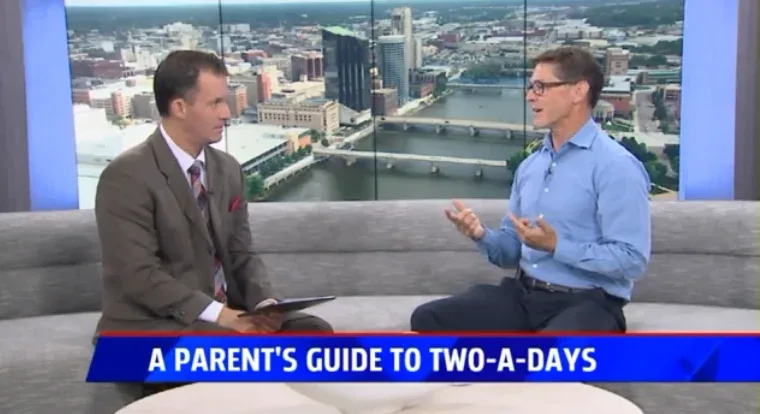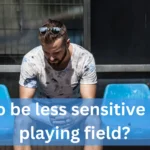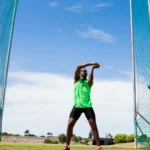 Tell me the truth in the comments below, was I too hard on Derek in this FOX17 interview?
Tell me the truth in the comments below, was I too hard on Derek in this FOX17 interview?
If you son is playing high school football, or maybe your daughter is running cross country – you have a child that will soon be increasing their preseason workload as they prepare for their fall sport season. Two-a-days are the double workouts that kids go through, and often complain about.
The Problem
- Kids are being pushed to the limits physically
- They may complain, not want to go, or give poor effort
- How as parents do we best support them?
What Parents Say and How to Say It Better
- Athlete: “ I’m tired, I don’t feel like going.”
- Parent: “Well, this is what you signed up for!” or “No pain, no gain” or “Suck it up”
- Minimizes their pain, makes kids feel like you don’t understand and feel alone
- Better: “Wow, yeah, it IS tough. You are working really hard and it hurts. I wonder how it will pay off when the season starts?” – This acknowledges and validates their pain, communicates your understanding and connects with them, reduces defensiveness, invites an opportunity to see if it is worth it by asking a question – not telling them (as I keep reminding Derek!)
- Athlete: “I’m sore, this hurts.”
- Parent: “Maybe you’re pushing too hard” or “Maybe you should take a break,“ or “Don’t hurt yourself.”
- Undermines the value and necessity of hard work, makes comfort the inappropriate priority, increases anxiety
- Better: “Are you hurt or injured?” and teach the difference … “Would you like help with recovery?” and discuss rest, sleep, ice, nutrition
- Athlete: “Can I just skip one workout, I need a break.”
- Parent: “No” or “Yes”
- Takes ownership away from child-athlete, decreases motivation if forced to go, missed opportunity to develop responsibility
- Better: “Tell me more about why you need this. What benefits will you get? What will skipping the workout cost you? Did you make a commitment to be there? How do you feel about breaking that commitment?”
Notice in All Responses:
- Parent invites child-athlete to express his/her opinion by asking questions (not giving unwanted advice)
- Each potential conflict is used as an opportunity to teach the child-athlete about hard work, sacrifice, commitment or other important value
- By having the athlete “think through” each scenario, you are helping build their motivation through ownership of their sport. Emotional intelligence is built by considering the consequences of impulsively acting on their feelings.



